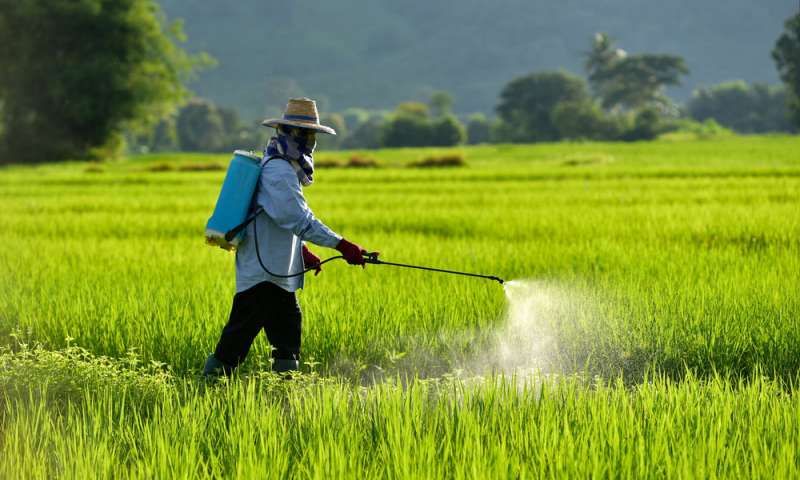Africa’s agriculture industry operates within some of the most demanding environments in the world. With soaring summer temperatures, erratic rainfall, fragile soils, and pest pressure all year round, farmers are constantly fighting to keep their crops safe while still maintaining production. Under such conditions, insecticides remain a vital tool in helping to secure yields and ensure food security.
Historically, chemical insecticides have been the preferred pest control measure. However, with rising concerns about environmental safety, resistance, and regulatory shifts, the future of insecticides in Africa is moving towards innovation, sustainability, and precision farming.
Leveraging its strong base in the UAE, Anglo Gulf is uniquely positioned to support African farmers by delivering next-generation solutions tailored to the continent’s climatic challenges. Producers across the region are investing in products that not only perform well under Africa’s varied and often extreme climates but are also eco-friendly.
Why Insecticides Are Vital in African Farming
Warm and humid greenhouse environments, combined with high outdoor temperatures, create favorable conditions for pests such as whiteflies, aphids, mites, and caterpillars. If not controlled in time, these pests can severely damage vegetables, fruits, and staple food crops.
Here’s why insecticides remain irreplaceable in African agriculture:
- Crop protection – Prevent yield losses from destructive pest infestations.
- Food security – Support Africa’s ongoing goal to strengthen domestic food production.
- Economic sustainability – Enable farmers to secure profitable harvests despite environmental pressures.
As demand for effective and safe solutions grows, the role of pesticide and insecticide producers is becoming more critical than ever.
Major Developments Defining the Future of Insecticides in Africa
1. Biological and Bio-Organic Insecticides
Many bio-organic fertilizer producers are expanding into natural pest management. Biological insecticides use natural agents such as bacteria, fungi, or plant compounds to target pests without harming beneficial organisms. Neem-based products, for example, are gaining popularity as safe and effective alternatives to chemical insecticides.
2. Climate-Resilient Formulations
Africa’s harsh climate—with high heat, strong sunlight, and seasonal variability—can reduce the effectiveness of conventional insecticides. Modern manufacturers are developing heat-resistant and UV-stable formulations that retain their potency even under extreme conditions.
3. Precision Application with Smart Farming
The future of insecticides is not only about better products but also smarter application. Precision agriculture tools—such as drones, AI-driven sensors, and intelligent sprayers—allow farmers to apply insecticides only where needed, reducing waste and minimizing environmental impact.
4. Integrated Pest Management (IPM)
African governments and agronomists are promoting IPM, which combines chemical insecticides with cultural practices, biological controls, and pest-resistant crop varieties. This approach reduces overreliance on chemicals while maintaining effective pest control.
5. Safer Chemical Innovations
Although biological solutions are expanding, chemical insecticides remain necessary. New-generation formulations are designed to be target-specific—killing pests while minimizing harm to pollinators, soil microbes, and humans.
The Role of Agrochemical Manufacturers in Africa
Africa’s agrochemical sector is evolving rapidly in response to these new demands. From its UAE headquarters, Anglo Gulf supports this transformation by supplying advanced solutions across the region. Alongside insecticide manufacturing, the industry also includes:
- Pesticide producers – offering wider crop protection options.
- Liquid NPK fertilizer producers – supporting plant nutrition alongside pest control.
- Glyphosate herbicide producers – enabling effective weed management.
- Mancozeb fungicide producers – safeguarding against fungal infections.
- Bio-organic fertilizer producers – encouraging soil health and sustainability.
This integrated ecosystem ensures that African farmers have access to comprehensive solutions for crop growth, pest management, and long-term resilience.
Challenges Ahead
Despite innovation, the future of insecticides in Africa must overcome key challenges:
- Pest resistance – Overuse of the same formulations can create resistant pest populations.
- Environmental regulations – Governments are tightening rules on chemical applications.
- Farmer awareness – Training and education are essential to ensure proper and safe usage.
By focusing on innovation and sustainability, insecticide producers can address these challenges while enabling African farmers to thrive.
Conclusion
The future of insecticides in Africa lies in innovation, sustainability, and alignment with modern farming technologies. From climate-resilient formulations and biological alternatives to precision application methods, insecticides are evolving to meet the continent’s agricultural needs.
With its UAE base and strong focus on Africa, Anglo Gulf is dedicated to empowering farmers with reliable solutions that boost yields, protect crops, and support long-term sustainability.
By adopting these advancements, African agriculture can thrive even under harsh conditions—ensuring food security, profitability, and ecological balance for generations to come.

